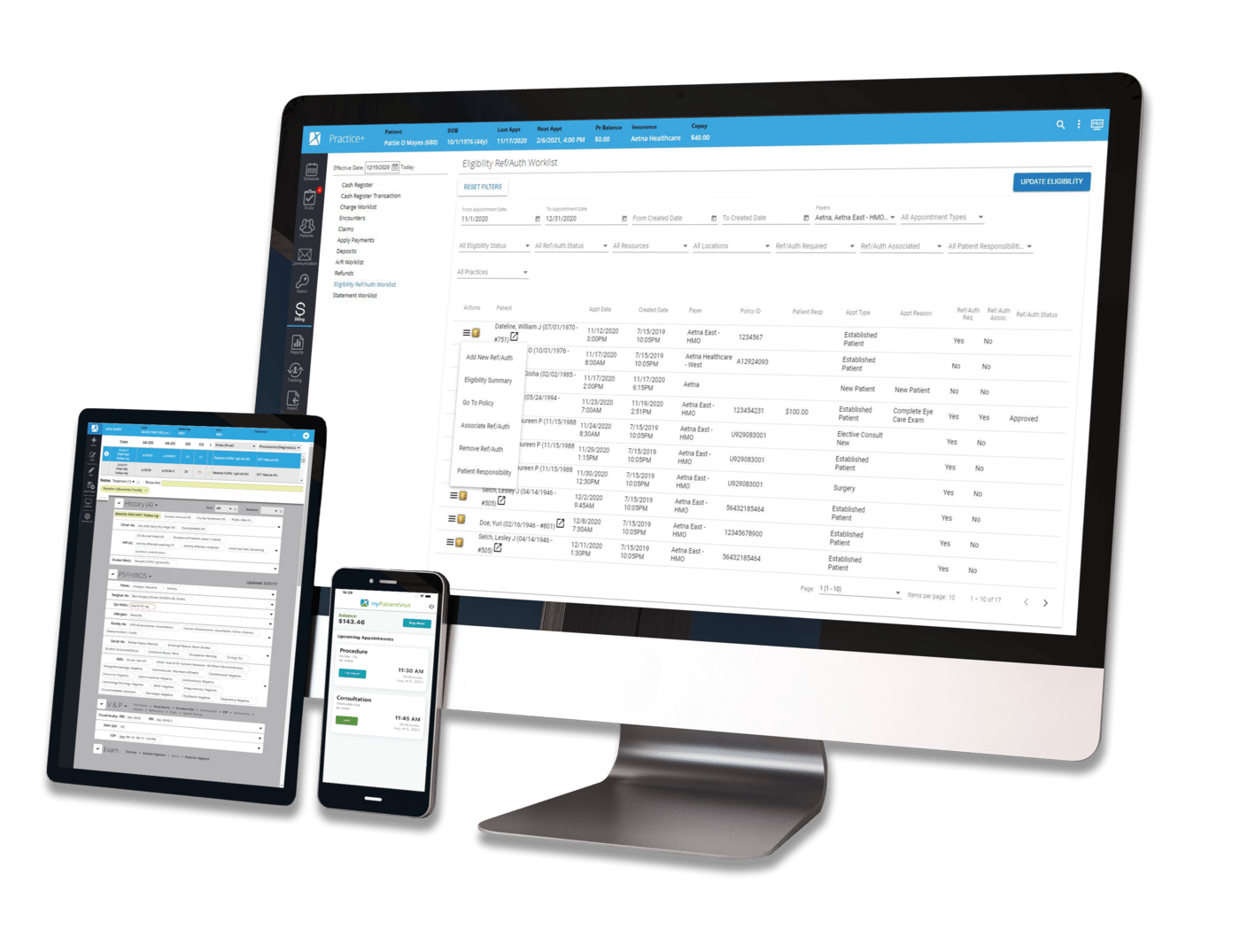Latest Articles
The latest news and information regarding electronic medical records, practice management software, HIPAA, and security from Nextech.

Regulatory & Compliance | Healthcare Technology | Financial Management
By:
Nextech
May 16th, 2018
As specialty practices begin to embrace value-based care models, many providers are considering technology that allows them to better capture information about the patient encounter, streamline financial operations and meet reporting requirements. Although this is a smart strategy, practices must be careful to not just bolt on solutions that operate in silos. Instead, they should look for technology that seamlessly integrates with other solutions, facilitating information exchange, enabling smoother processes and limiting the likelihood that key information will slip through the cracks.

By:
Jennifer Gibson
May 7th, 2018
As health care organizations aim to tighten their business processes to drive revenue and increase cash flow, specialty practices sometimes find themselves behind the curve, unsure of where to begin to improve performance. Part of the reason is there are some common misconceptions about the revenue cycle and the best ways to optimize it.


Healthcare Technology | Financial Management
By:
Jennifer Gibson
April 27th, 2018
Many specialty providers wrestle with denials. For example, ophthalmology practices have one of the highest denial rates—weighing in at nearly 13 percent. If left unaddressed, denials can translate to significant money, and the financial fallout for a practice can be severe. As mentioned in a previous blog, providers should consider creating a denials prevention program as a sound strategy for improving revenue cycle performance. Here are three elements to keep in mind when designing such a program.

By:
Jennifer Gibson
April 20th, 2018
Re-tooling your revenue cycle to make it more efficient can go a long way in improving your specialty practices’ financial performance. As mentioned in the previous blog, a key area of opportunity is patient collections. The growth in high-deductible health plans is pushing patients to pay more out-of-pocket for their health care. In response, practices should be implementing processes and various technology to consistently collect these payments. Otherwise, money will be left on the table. Here are three strategies for improving the patient collections process.

Healthcare Technology | Financial Management
By:
Jennifer Gibson
April 6th, 2018
There are numerous external factors that can impact a specialty practice’s ability to remain financially strong—shrinking payer reimbursements, evolving regulatory requirements and the exploding number of high deductible health plans, just to name a few. A key to navigating these evolving dynamics is a high-performing revenue cycle—one that is not only efficient but also effective at capturing all the revenue that a practice has earned.

By:
Nextech
March 8th, 2018
A solid reputation is a key part of any sound marketing strategy. Favorable impressions and positive word of mouth can go a long way in attracting new patients and driving referrals—particularly for specialty practices. One method for boosting a practice’s reputation is to cultivate happy patients. Engaging in your patients’ care, along with positive clinical and financial experiences, they are more likely to return and even share opinions with friends and family.

By:
Nextech
February 20th, 2018
Conference optimizes use of health care technology built by Nextech and powered by specialty providers

Dermatology | Revenue & Finances | Events & Trade Shows
By:
Nextech
February 8th, 2018
For years, dermatologists, like all physicians, have been hammered with mandates, such as meaningful use and now value-based care. Trying to keep up with the constantly changing regulations may at times seem like a distraction away from the patients for which these policies were intended to benefit.